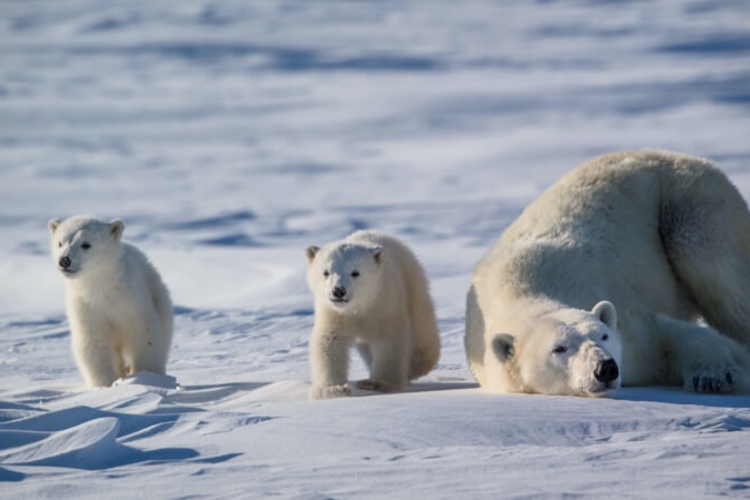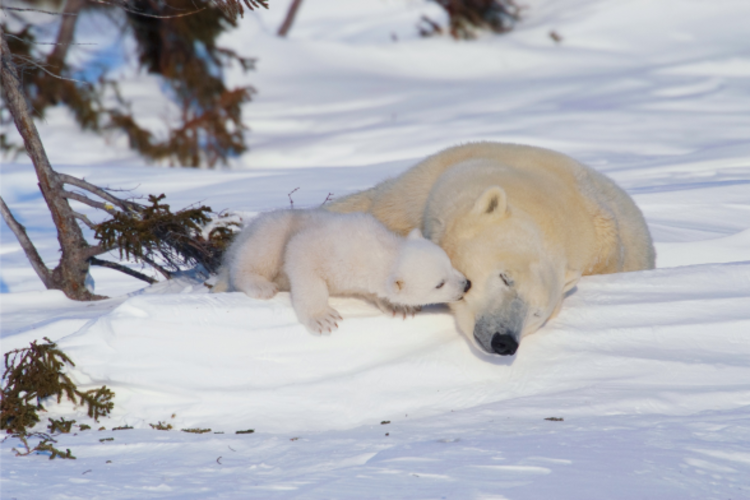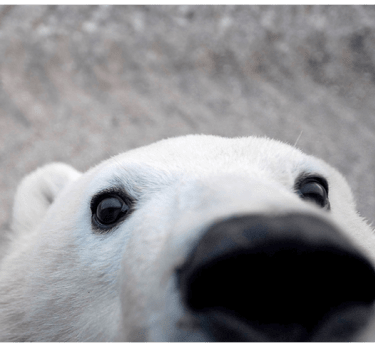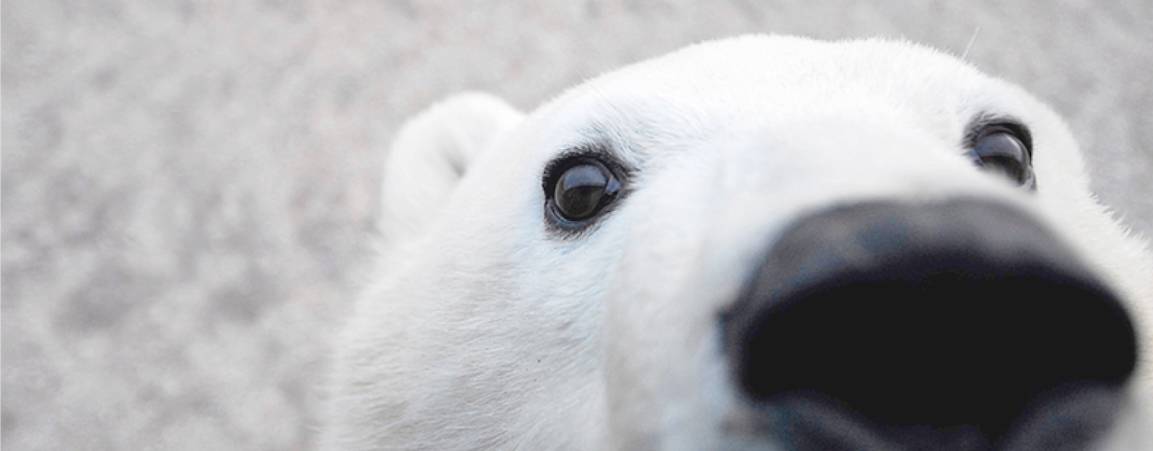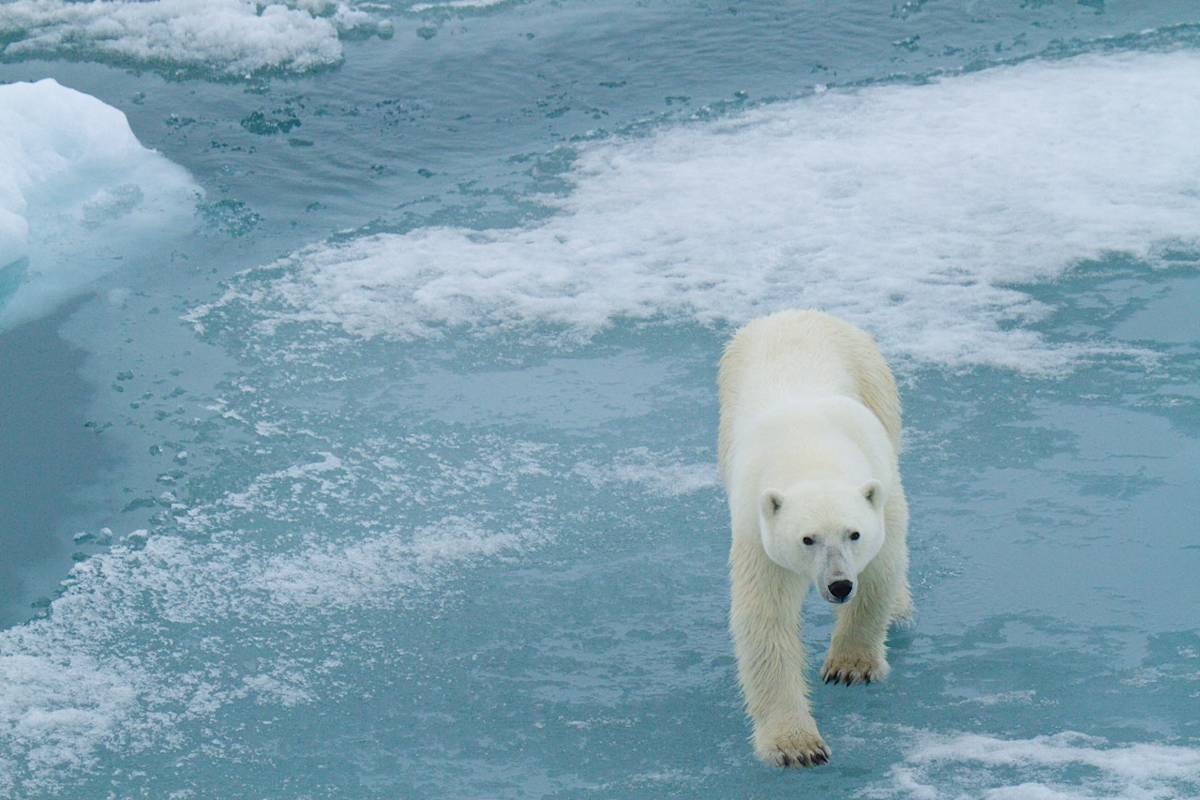
Photo: Kt Miller / Polar Bears International
Polar bears have found a surprising way to obtain the water they need.
Do Polar Bears Drink Water?
By Dr. Thea Bechshoft with Dr. John Whiteman
MINS
10 Jan 2025
We’re back with our Polar Bear Questions series with a query from Lars: "Do polar bears drink water and, if so, where do they find it? Living in a frozen world does not supply a lot of liquid fresh water."
Good question, Lars! Polar bears do indeed live most of their life out on the sea ice, surrounded by saltwater, which is no good for drinking. Bears have some options to get around this lack of drinking water.
How do polar bears get water?
Snow
Polar bears will sometimes eat snow, but usually not in great amounts because it requires energy to melt. Bears also tend to eat snow when they want to cool down, for example after sparring/fighting or on a sunny day.
Ponds
Polar bears will have a drink at the freshwater melt ponds that can form on the sea ice during the warmer months of the year. In the ice-free summer months on land, they will drink water from the freshwater ponds dotting the landscape.
Milk
Cubs get nutrients and water from drinking their mother’s milk until they are weaned at about 2.5 years old
Food (especially seals)
Polar bears also get water from eating, in two ways:
Food itself contains water: by mass, water is about 70% of seal muscle and about 10% of seal blubber.
Breaking down food: However odd this may sound—polar bears make their own water! The process of breaking down food for energy produces water as a byproduct. This is true of humans as well; you are burning food to support your metabolism as you read this, producing small quantities of water in nearly every cell in your body.
Water loss: it’s all about balance
In combination, these water sources are surprisingly meager for a large animal like a polar bear. How do they avoid dehydration?
Early research suggested that the high-fat diet of a polar bear was the key, as burning fat for energy was assumed to yield a large amount of water as a byproduct. However, recent research instead suggests that polar bears may simply minimize their water loss, allowing them to survive on relatively limited water inputs.
Understanding how polar bears meet their fundamental need for water is important for understanding the effects of climate change, as snow and ice conditions change and bears in some regions endure longer periods without catching a seal.
PBI is supporting work by Chief Research Scientist John Whiteman to test ideas about how polar bears stay in water balance, with a focus on how this basic biological process can help us understand threats to their long-term existence.
By Dr. Thea Bechshoft with updates by John Whiteman
Dr. Thea Bechshoft is a polar bear scientist based in Aarhus, Denmark. She is the author of the popular Polar Bear Questions page on Facebook, republished here with permission.
Dr. John Whiteman is Chief Research Scientist for Polar Bears International. He is also an Assistant Professor of Biology at Old Dominion University in Norfolk, Virginia.




